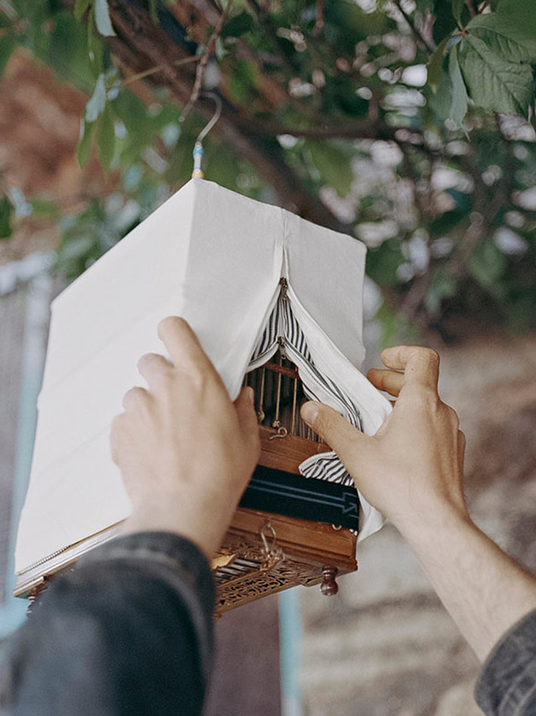for birds sake

" for birds sake ," an online exhibition by Cemre Yesil and Maria Sturm, begins with a statement offering a fascinating bit of history and contemporary politics: Since the time of the Ottoman Empire, Istanbul has been a very important city for aviculture. The city’s geographical location for bird migration has led to the establishment of a huge culture devoted to birds and their care. The photographers’ statement goes on to describe the purpose of the photographs: This work is about the birdmen of Istanbul and focuses on the shrouded relationship between the bird and the birdman, one full of contradictions of love, possession and pleasure. The birds compete to determine which has the most beautiful song of the day. The authors of the show put it this way: an illegal tradition an addiction a meditation Something they need in order to feel good. The first photograph shows two hands pulling apart curtains that hang over a birdcage. We can see past the do

